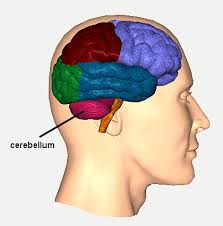Are You a Frequent Faller? I Am.

Are you a frequent faller?
Only too often people with SPMS are described as frequent fallers; I am. There are usually only a couple of reasons but you ignore them at your own peril.
Drop foot
I have a leg that does not do what it is told, sometimes known as drop foot. I’m unable to lift my left leg off the ground. Imagine wearing a shoe with a strong magnet in the toe on a metal floor. That helps to explain why I lose my balance
Nerves
Some nerves in my spinal cord have been damaged by MS so not all the messages from the brain get to the leg. At the same time the leg is telling the brain what it is doing but once again not all the messages reach the brain because of damage to the nerves.
Poor balance
It was a shock when I realised that the only way to get dressed is to spend as much time as possible sitting down. Gone are the days when I could put on my socks or trousers while standing up; this is a balance problem. Also I must sit down to take off a pullover because the moment when it is over my head I cannot see my surroundings.
Here are some other things I cannot do, hop, stand with one foot directly in front of the other, and as for trying to walk along a line with my feet always heel to toe, well forget it.
Tremor in my left leg
I suffer from very stiff muscles in my left leg and foot. I move slowly and if I have been sitting down for too long then this only makes walking and keeping my balance even more tricky.

Our brain. The cerebellum is next to the brain stem
Multi-task
This is not because I’m a bloke. I cannot walk and talk or walk and look at the scenery. Anything that calls for two different activities is doomed to end in disaster. This can be something as simple as walking and changing direction. This is because the MS is now affecting the cerebellum of my brain.
The risk of falling
The problems I have outlined are not the only reason why people have a fear of falling over. It is perfectly possible to trip over something. There are other problems such as getting old, low blood sugar, ear infections or arthritis that can increase the risk of falling. The consequences of
Use it or lose it
These problems can lead to a fear of falling over and this can easily lead onto further problems, break a bone and a less active lifestyle. This in turn results in less stamina as well as being less fit and a greater dependence upon other people doing things for you. Less activity and exercise can easily lead onto feelings of depression and a lack of motivation. All of this can easily become a downward spiral.
Concentration
Falling over only takes a moment of poor concentration or thinking about something else. Usually it happens because the brain is asking the body to do something that it is now physically incapable of achieving.
Multiple sclerosis can have terrible effects, being a frequent faller and to lose my balance are two of the many poblems that go with this disease. The consequences can be much more serious, you could break a bone



Leave a Reply